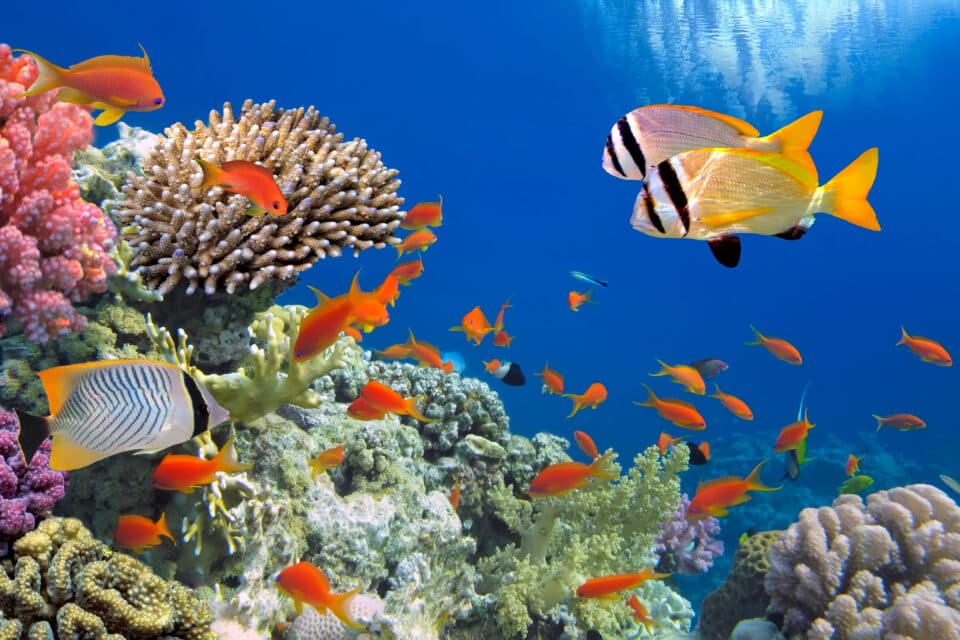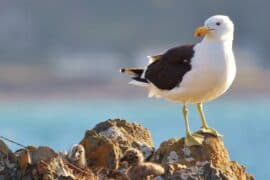
Are corals and fish in an exclusive relationship? It's complicated
A new study from James Cook University is reshaping our understanding of the relationship between coral reefs and fish populations.
The researchers analyzed over 4,600 reports to investigate the dynamics between these two critical components of the underwater world.
Corals have been viewed as the bedrock of the reef ecosystem, providing essential shelter and food sources for a diverse array of fish species.
For decades, scientists have assumed that a direct, robust link exists between coral reefs and the fish species that inhabit them.
Significance of coral and fish relationships
“Habitat associations underpin species ecologies in high-diversity systems. Within tropical, shallow water coral reefs, the relationship between fishes and corals is arguably the most iconic and highly scrutinized,” wrote the study authors.
“A strong relationship between fishes and reef-building hard corals is often assumed, a belief supported by studies that document the decline of reef fishes following coral loss. However, the extent of this relationship is often unclear, as evidenced by conflicting reports.”
Weak associations
Study lead author Pooventhran Muruga noted that coral reefs undeniably serve as a key habitat for reef fishes, providing both shelter and food. “It is therefore no surprise that for more than four decades there has been a widespread consensus that reef fishes are associated with reef-building corals.”
“But on closer inspection of the literature, we found a large variability within and across fishes and locations and globally there were only weak associations between fishes and corals.”‘
Study co-author Professor David Bellwood said the findings questioned assumptions regarding the strength and ubiquity of fish-coral associations. “I would caution against assuming a direct and omnipresent relationship between the two,” said Professor Bellwood.
Stability of fish populations
The research also points to the resilience of many fish populations in the face of significant coral loss, a phenomenon that Dr. Alexandre Siqueira finds particularly telling.
Dr. Siqueira noted that the apparent weakness of fish-coral associations, combined with the stability of some fish populations amidst catastrophic coral loss, underscored the need to acknowledge that coral cover alone may not influence fishes as strongly as we thought.
Two co-occurring entities
Muruga said rather than a critical interdependence, fishes and corals may be two co-occurring entities within a much more complex ecosystem.
“The findings don’t downplay the importance of corals on reef but suggest there is more to the relationship,” said Muruga. “It emphasizes the need to look beyond the simple paradigm of more coral equals more fish and acknowledge the complex processes that structure and maintain coral reef communities.”
More about coral and fish relationships
The relationship between coral reefs and fish is a complex and mutually beneficial one, forming a symbiotic relationship that supports a diverse array of marine life and ecosystems.
Shelter for fish
Coral reefs, built by colonies of tiny organisms called coral polyps, create a dynamic environment with nooks, crannies, and hiding spots that protect fish from predators and harsh environmental conditions.
Reef health
Fish, in turn, play a crucial role in the health and maintenance of coral reefs. Many fish species are herbivores, feeding on algae that, if left unchecked, can overgrow and suffocate corals, depriving them of sunlight.
By grazing on these algae, fish help keep the coral’s environment balanced and conducive to its growth and survival. Additionally, fish contribute to the reef’s nutrient cycle. Their waste provides essential nutrients that corals need to thrive.
Coral diversity
Some fish species, known as coralivores, feed directly on corals, which might seem harmful. However, this feeding can also be beneficial as it encourages coral diversity by preventing any single species from dominating the reef ecosystem.
Other fish species, like the clownfish, have a more intimate relationship with specific corals, offering protection to the coral in exchange for shelter.
The study is published in Nature Ecology & Evolution.
Like what you read? Subscribe to our newsletter for engaging articles, exclusive content, and the latest updates.
—-
Check us out on EarthSnap, a free app brought to you by Eric Ralls and Earth.com.












